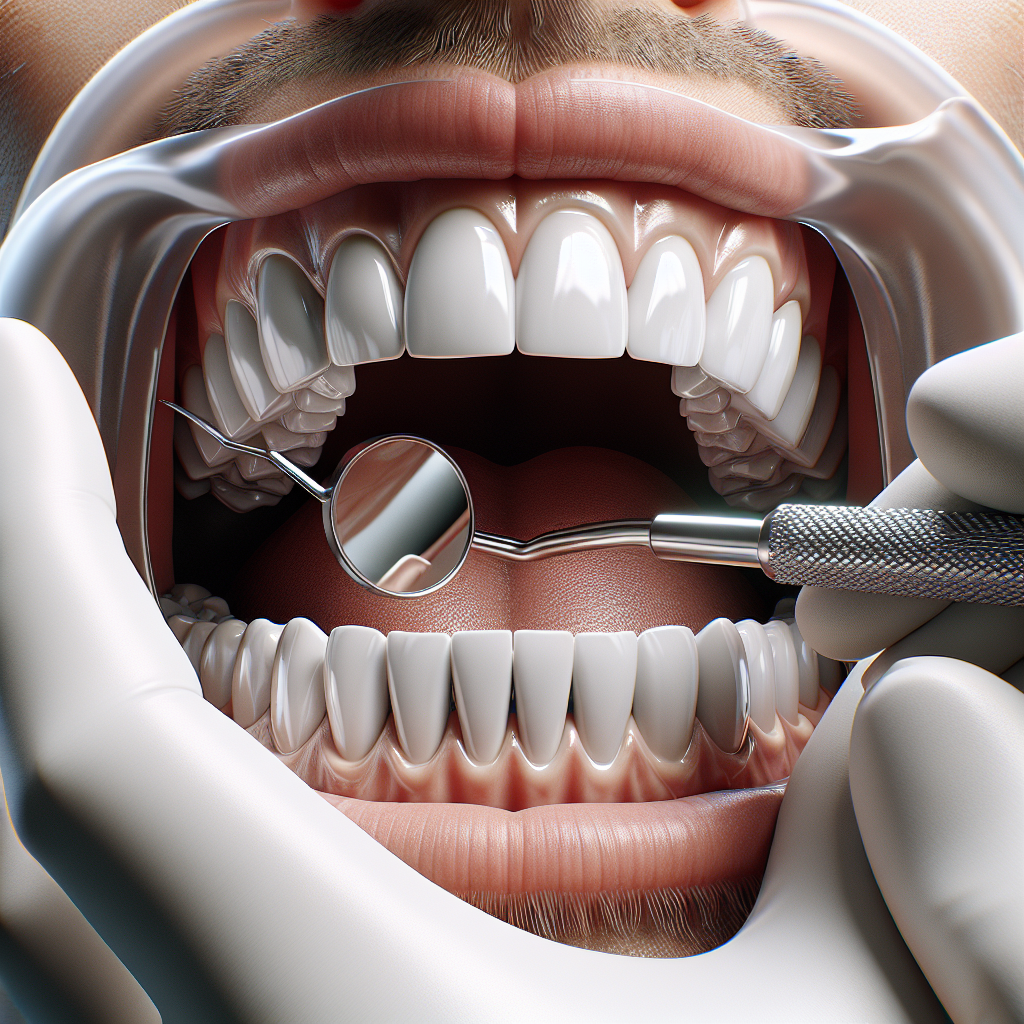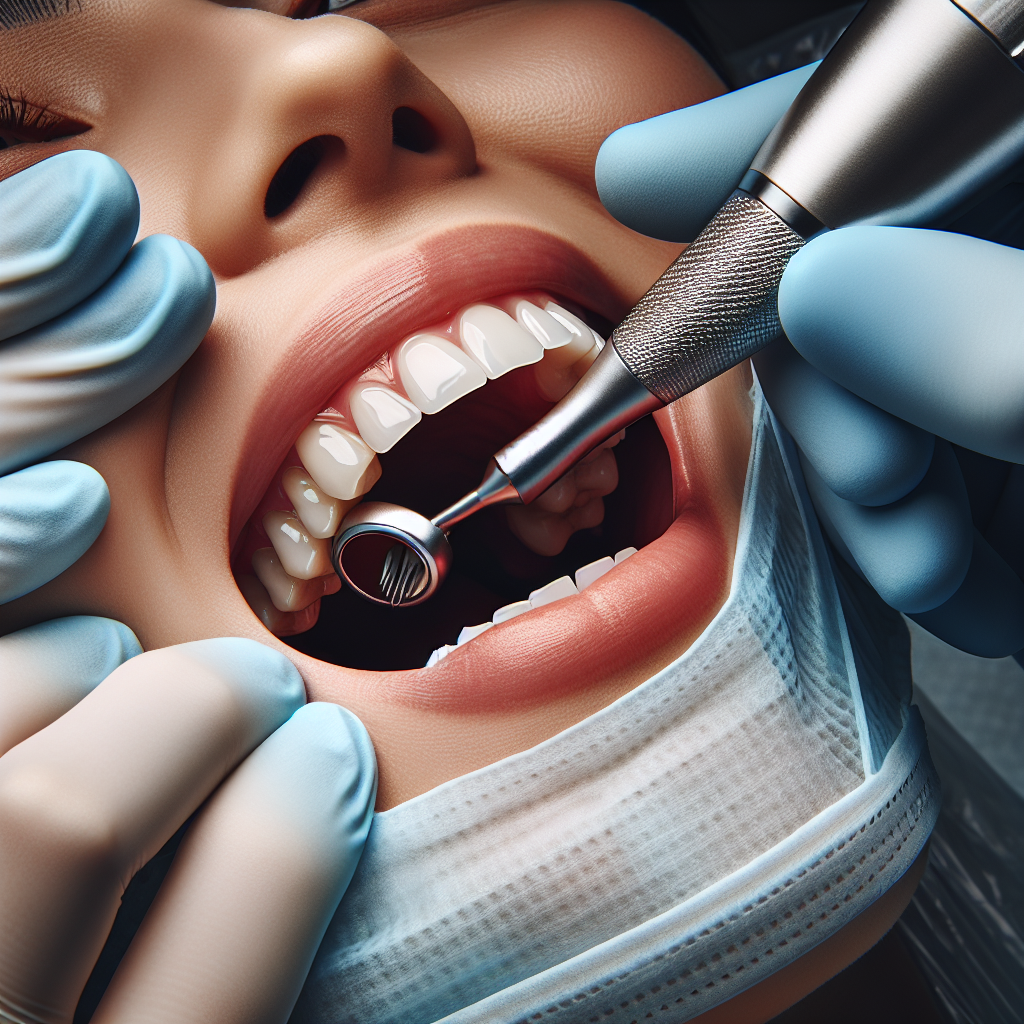What Is Deep Cleaning Teeth Called
When it comes to oral health, regular brushing and flossing are essential, but sometimes they aren’t enough to maintain optimal hygiene. This is where deep cleaning teeth, also known as scaling and root planing, comes into play. Deep cleaning is a specialized dental procedure aimed at treating gum disease and preventing it from progressing. Unlike regular cleaning, which focuses on the surfaces of your teeth, deep cleaning targets the areas below the gum line and the roots of your teeth.
Deep cleaning teeth is a procedure recommended for individuals showing signs of gum issues such as bleeding, swelling, or pockets between the teeth and gums. By removing plaque and tartar buildup from these hard-to-reach areas, deep cleaning helps in reducing inflammation and promoting gum health.
At Tidyups Cleaning Service Inc, we believe in the importance of maintaining not only a clean living space but also a healthy lifestyle. That’s why we’re committed to providing you with all the information you need to keep every aspect of your life pristine. Visit our website to learn more and get your FREE Quote today! Click here.
What Is Deep Cleaning Teeth Called

The term deep cleaning teeth refers to a dental procedure known as scaling and root planing. This process is designed to combat periodontal disease by meticulously cleaning below the gum line and smoothing the tooth roots. Dentists recommend this procedure for patients who exhibit symptoms of gum disease such as persistent bad breath, loose teeth, receding gums, or deep pockets between the gums and teeth.
Scaling involves removing plaque and tartar (hardened plaque) from the tooth surfaces and beneath the gum line. Using specialized dental tools, the dentist will carefully scrape away these harmful deposits that regular brushing and flossing can’t reach. Root planing, on the other hand, focuses on smoothing out the rough spots on the tooth roots. This step is crucial because it helps remove bacteria and allows the gums to reattach to the teeth more securely.
Understanding the terminology and purpose of deep cleaning can help you better appreciate the importance of this procedure in maintaining your oral health. By addressing the root causes of gum disease, deep cleaning teeth not only improves your gum health but also contributes to your overall well-being.
Importance of Deep Cleaning Teeth

The importance of deep cleaning teeth cannot be overstated when it comes to maintaining optimal oral health. This procedure is pivotal in preventing and treating periodontal disease, which, if left unchecked, can lead to severe health complications. Deep cleaning goes beyond the scope of regular dental cleanings by targeting the buildup of plaque and tartar below the gum line, which are primary contributors to gum disease.
One of the key benefits is the prevention of tooth loss. Gum disease is a leading cause of tooth loss in adults, and deep cleaning plays a crucial role in halting its progression. By removing harmful bacteria and smoothing the root surfaces, it encourages the gums to heal and reattach to the teeth, thereby stabilizing the teeth in their sockets.
Additionally, the procedure significantly improves gum health. Healthy gums are essential for a strong foundation for your teeth and overall oral hygiene. Deep cleaning reduces inflammation and bleeding, common symptoms of gum disease, thus promoting healthier gums.
Another critical aspect is its impact on overall health. Studies have shown a link between periodontal disease and systemic conditions such as heart disease, diabetes, and respiratory issues. By managing gum disease effectively through deep cleaning, you can potentially lower your risk of developing these conditions.
Lastly, deep cleaning can lead to fresher breath and a more aesthetically pleasing smile. By eliminating the bacteria that cause bad breath and removing stains from below the gum line, it enhances your oral hygiene and boosts your confidence.
Procedures Involved in Deep Cleaning Teeth

Deep cleaning teeth, also known as scaling and root planing, involves a meticulous process designed to remove plaque and tartar buildup beneath the gum line. This procedure is essential for treating and preventing periodontal disease. Here’s a detailed look at the steps involved:
1. Initial Examination: Your dentist or dental hygienist will begin with a thorough examination of your mouth. They may use a probe to measure the depth of the pockets around your teeth to assess the extent of gum disease.
2. Local Anesthesia: To ensure your comfort during the procedure, a local anesthetic is often administered. This numbs the area to be treated, making the process virtually painless.
3. Scaling: Using specialized dental instruments, the hygienist will remove plaque and tartar from the surfaces of your teeth and below the gum line. This step is crucial for eliminating the bacterial buildup that contributes to gum disease. Ultrasonic scalers, which use vibrations to break up tartar, are commonly used in conjunction with manual tools.
4. Root Planing: After scaling, the root surfaces of your teeth are smoothed in a process known as root planing. This step helps remove bacterial toxins and makes it more difficult for plaque to accumulate in the future. Smoothing the root surfaces also promotes the reattachment of the gums to the teeth.
5. Post-Procedure Care: After the deep cleaning, your dentist may recommend a course of antibiotics to combat any remaining bacterial infection. Additionally, they may provide specific instructions for oral care at home, including the use of antiseptic mouthwash and proper brushing and flossing techniques to maintain the cleanliness achieved during the procedure.
It’s important to follow your dentist’s post-procedure recommendations closely to ensure the best possible outcomes. Regular dental check-ups and cleanings are also essential to keep your gums healthy and prevent the recurrence of gum disease.
Benefits of Deep Cleaning Teeth

Deep cleaning teeth, or scaling and root planing, offers numerous benefits that extend beyond just a cleaner mouth. Here are some of the key advantages:
1. Preventing Gum Disease: One of the most significant benefits of deep cleaning is its ability to prevent and treat gum disease. By removing plaque and tartar buildup beneath the gum line, this procedure helps to eliminate the bacteria that lead to gum inflammation and infection.
2. Reducing Bad Breath: Plaque and tartar can harbor bacteria that produce unpleasant odors. Deep cleaning effectively removes these deposits, leading to fresher breath and a more pleasant oral environment.
3. Promoting Healthy Gums: By thoroughly cleaning the teeth and smoothing the root surfaces, deep cleaning encourages the gums to reattach to the teeth. This reduces pocket depth and helps to restore gum health, preventing further progression of periodontal disease.
4. Preventing Tooth Loss: Advanced gum disease can lead to tooth loss due to the destruction of the supporting bone and tissues. By addressing gum disease early through deep cleaning, you can help preserve your natural teeth and maintain a strong foundation.
5. Enhancing Overall Health: The health of your mouth is closely linked to your overall health. Chronic gum disease has been associated with various systemic conditions, including heart disease, diabetes, and respiratory issues. By maintaining healthy gums through deep cleaning, you can reduce your risk of developing these serious health problems.
6. Improving Aesthetic Appearance: Deep cleaning not only improves oral health but also enhances the appearance of your smile. Removing plaque, tartar, and superficial stains can leave your teeth looking cleaner and brighter.
Incorporating regular deep cleanings into your oral hygiene routine can lead to long-term benefits for your dental and overall health. Consult with your dentist to determine the best schedule for deep cleaning based on your individual needs.
Frequently Asked Questions About Deep Cleaning Teeth

Many people have questions about deep cleaning teeth, also known as scaling and root planing. Below are some frequently asked questions to provide clarity on this essential dental procedure:
1. What is deep cleaning teeth called? The professional term for deep cleaning teeth is scaling and root planing. This procedure involves cleaning the areas of the teeth and gums that regular brushing and flossing cannot reach.
2. Is deep cleaning painful? Deep cleaning can cause some discomfort, but dentists typically use local anesthesia to numb the area, making the procedure more comfortable. Some patients may experience mild soreness afterward, which can be managed with over-the-counter pain relievers.
3. How long does a deep cleaning session take? The duration depends on the severity of the gum disease and the extent of tartar buildup. Generally, it can take between one to two hours, and sometimes the procedure is spread over multiple visits.
4. How often should one get deep cleaning? The frequency of deep cleaning varies based on individual needs. Some may require it every three to six months, while others may only need it once a year or less. Your dentist will recommend the best schedule for you based on your oral health condition.
5. Are there any side effects? Some common side effects include mild gum sensitivity, bleeding, and swelling. These symptoms usually subside within a few days. Maintaining good oral hygiene and following your dentist’s post-care instructions can help minimize these effects.
6. Is deep cleaning covered by insurance? Many dental insurance plans cover deep cleaning, especially if it is deemed medically necessary for treating gum disease. It is advisable to check with your insurance provider for specific coverage details.
Understanding the importance and procedures of deep cleaning can help you maintain optimal oral health. If you have further questions or need to schedule a deep cleaning session, visit our website to learn more and get your FREE Quote today! Click here.
